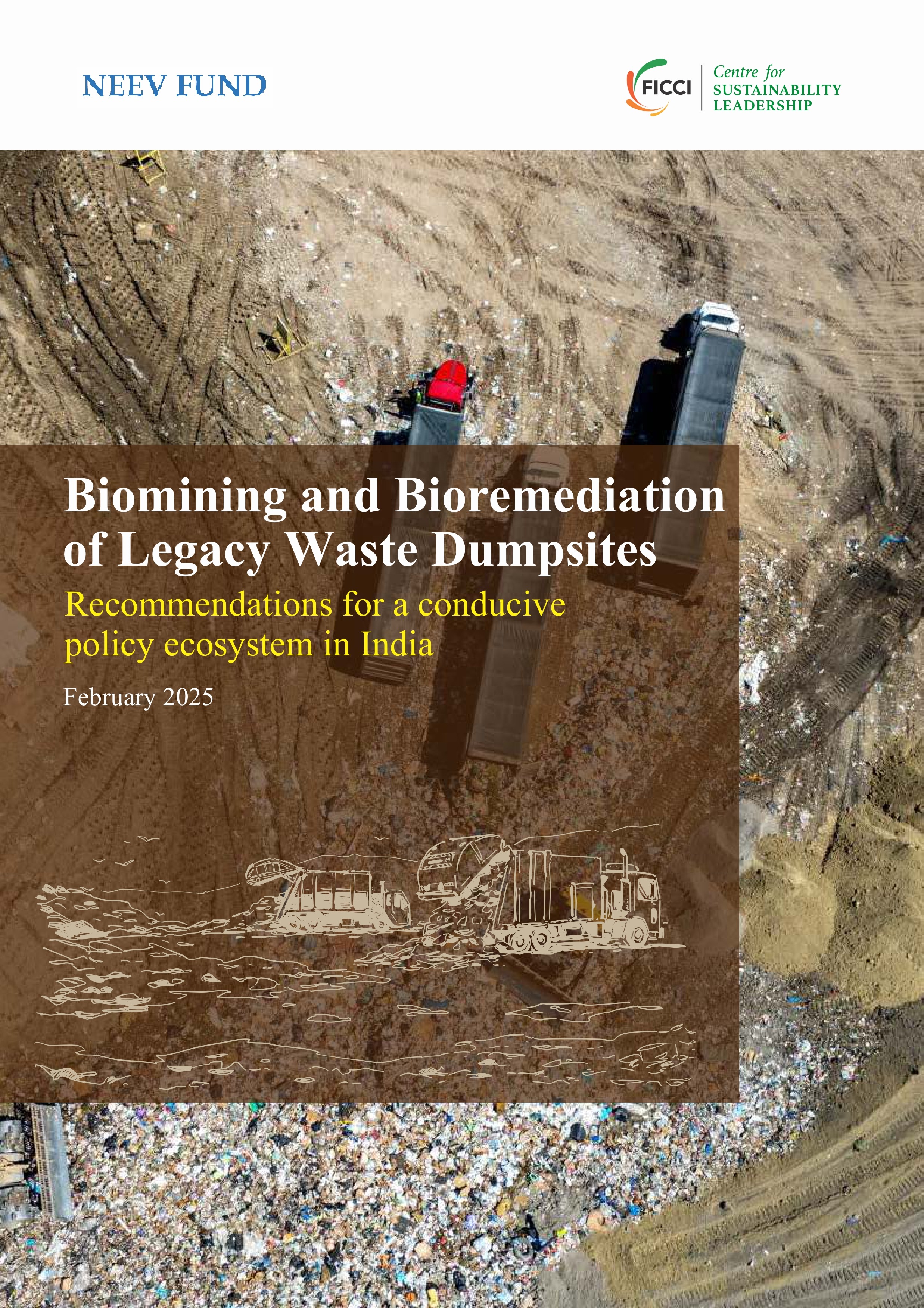Biomining & Bioremediation of Legacy Waste Dumpsites
February 2025 | Environment & Climate Change
The report highlights the urgency of addressing India’s 2,429 legacy dumpsites, which span over 14,000 acres and hold 235 million metric tonnes of waste. These sites impact nearly 5% of the country’s land area, posing serious environmental and health risks. Despite efforts under Swachh Bharat Mission 2.0, only 25% of the sites have been remediated.
Biomining and bioremediation are presented as key enablers for sustainable waste management, offering solutions for land reclamation, pollution control, and resource recovery. However, the sector faces challenges such as high costs, limited infrastructure, poor market linkages for Refuse-Derived Fuel (RDF) and biosoil, and a lack of technical expertise.
The report recommends accelerating biomining through stricter regulations, advanced technologies like AI and biotechnology, and strengthened policy frameworks. It emphasizes the importance of public-private partnerships, financial incentives, workforce development, and community engagement. Robust monitoring systems, including ERP and GPS tracking, are also advised. The report envisions sustainable closure and redevelopment of dumpsites, positioning biomining as a transformative solution for environmental restoration and circular economy integration in India.
